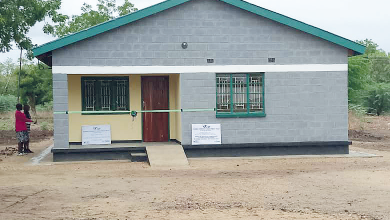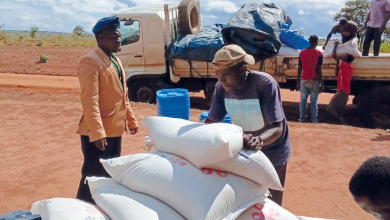Covid-19 funds cases stall justice
Nearly five years after the government cracked down on officials accused of mismanaging $8 million in Covid-19 relief funds, none of the implicated public servants have been prosecuted.
In February 2021, then-president Lazarus Chakwera dismissed Labour Minister Ken Kandodo, interdicted 10 principal secretaries and 28 district commissioners, and oversaw the arrest of numerous officials amid investigations into the misuse of funds.
Weekend Nation investigations reveal that despite these high-profile arrests and subsequent court bail releases, the cases remain dormant. No formal charges have been filed, and court
proceedings have yet to begin, raising serious concerns about accountability and the rule of law.
The accused continue to report to Malawi Police Headquarters in Area 30, Lilongwe, as part of their bail conditions. However, their cases have not progressed, and prosecutors have yet to act.

Assistant National Police spokesperson Alfred Chimthere acknowledged the situation, saying the police are aware but need more time to consult with the Prosecutor’s Office. “The number of these public servants is huge, but I am yet to be provided with details as regards the status of the cases,” he said.
Ministry of Justice spokesperson Frank Namangale confirmed that the case files have not been submitted to the Office of the Director of Public Prosecutions (DPP). “These files were not submitted to us,” he said, attributing the delay to the absence of documentation.
Human rights advocates have expressed alarm over the prolonged inaction. Victor Mhango, executive director of the Centre for Human Rights Education, Advice and Assistance (Chreaa), said: “It is concerning that individuals accused of mismanaging Covid-19 funds remain in legal limbo five years after their arrest. This prolonged uncertainty undermines justice and due process.”
Michael Kaiyatsa, executive director of the Centre for Human Rights and Rehabilitation (CHRR), said the delay reflects systemic weaknesses. “Justice delayed is justice denied, for both the accused and the public. It erodes trust in institutions like the police, DPP, and courts.”
Kaiyatsa also criticized the continued enforcement of bail conditions. “Bail is meant to ensure court appearance, not serve as indefinite punishment. Keeping people under restrictions for years violates fairness and due process.”
He emphasized that the right to a fair trial within a reasonable time is protected under Malawi’s Constitution and international law, including the International Covenant on Civil and Political Rights (ICCPR).
Kaiyatsa urged the accused to seek legal representation and called on authorities to review all stalled cases. “The State must not use delays as administrative punishment. Doing so offends justice and human rights norms.”
He warned that continued enforcement of bail without prosecution amounts to arbitrary restriction of liberty. “The government must act promptly and transparently. Accountability must not come at the expense of fairness.”
Kaiyatsa observed: “The prolonged inaction not only diminishes public trust but undermines justice. Authorities must act now to restore confidence in Malawi’s legal system.”





